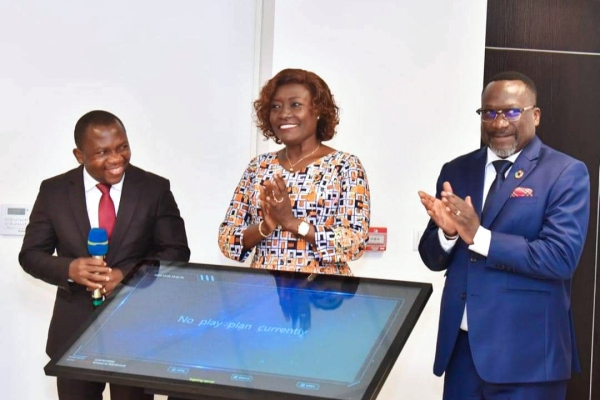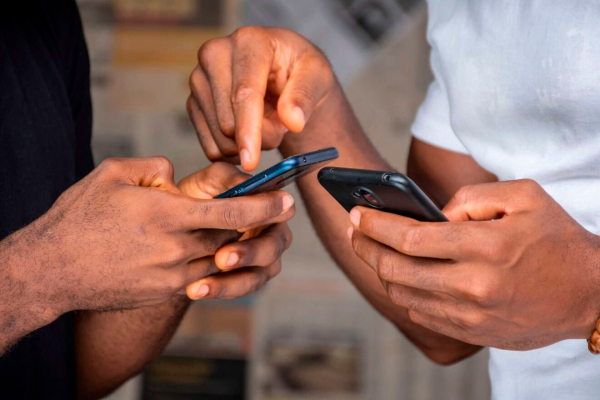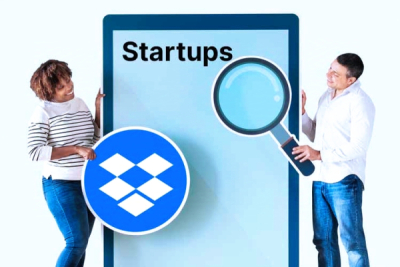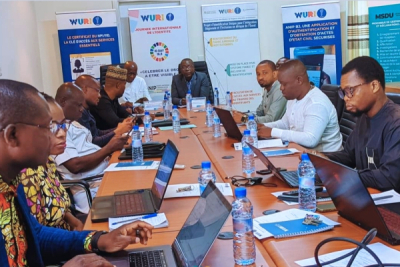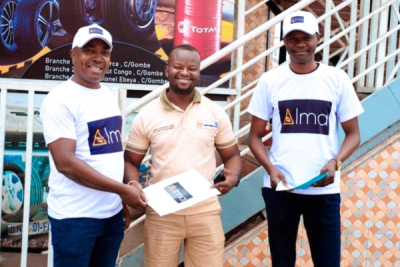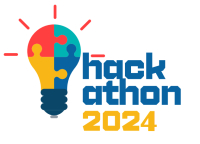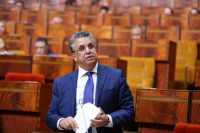The Covid-19 crisis has highlighted the power of digital technology in education, in Africa as elsewhere. Since then, African governments have been launching initiatives to promote its development and improve access to quality education for all.
On Thursday, October 24, the Ivorian Minister of National Education and Literacy, Mariatou Koné (photo, center), officially presented and launched the National Digital Education Strategy of Côte d'Ivoire (SNDECI). This roadmap, based on recommendations from the National Education and Literacy General Assembly (EGENA), reflects the government’s commitment to elevating the Ivorian educational system to be among the world's best within the next five years.
“Digital education supports traditional teaching and will significantly enhance the quality of our education system without replacing in-person learning. By integrating modern technologies into our schools, we reduce geographical, social, and economic inequalities, allowing the education system to provide more interactive and engaging learning to every child, wherever they are,” stated Mariatou Koné.
The new strategy aligns with the 2021-2025 National Digital Development Strategy and the country’s national development plan, which aim to transform Côte d'Ivoire's economy through the integration of digital technologies across all sectors, including education. It is built on three pillars: infrastructure, organization, and training. The strategy, with an estimated budget of 220.7 billion CFA francs (about $364 million), will include training for teachers and administrative staff, the acquisition of digital equipment, and the installation of modern technological infrastructure in schools.
The implementation of this strategy is expected to bring multiple benefits, enhancing the accessibility and equity of the education system. It will bridge quality gaps between regions, particularly in rural areas, and provide students with the digital skills needed to thrive in a transforming economy.
According to United Nations projections, Africa’s population will reach 2.4 billion by 2050, with more than half under the age of 25. This youth demographic presents a significant opportunity for Africa, but it also underscores the urgency of developing modern, inclusive education systems capable of meeting the needs of a digital workforce and fostering sustainable economic growth on the continent.
Samira Njoya
Mandating tax compliance verification for mobile devices could increase tax revenue collection and reduce economic losses from illicit device imports. Counterfeit devices are often less secure and more vulnerable to cyber threats. Requiring a database of verified, tax-compliant devices can improve device authenticity and network security for end-users.
The Communications Authority of Kenya (CA) has instructed mobile network operators to connect devices only after verifying their tax compliance, according to a public notice posted on its X page on October 24. This directive, effective from November 1, 2024, requires operators to consult a Kenya Revenue Authority (KRA) database of compliant devices, ensuring that only tax-compliant phones are connected to their networks.
Under these new regulations, local device assemblers, importers, retailers, and wholesalers must upload the International Mobile Equipment Identity (IMEI) numbers of all mobile phones into a KRA-provided portal. All devices connected to networks before October 31, 2024, are exempt from these rules. Starting January 1, 2025, the KRA will track all locally assembled and imported devices to maintain tax compliance.
Operators will also have to implement a “gray-listing” system for non-compliant devices, granting a limited period for tax regularization. If compliance isn’t met, the devices will be blacklisted. Retailers and wholesalers are similarly required to verify the tax status of devices before sale, and the CA will provide a verification mechanism for end-users.
These measures are part of Kenya’s ongoing efforts to ensure regulatory compliance in the telecommunications sector, strengthen the National Master Database on Tax-Compliant Devices, and address device-related security and network integrity.
A study conducted by Kenya's Anti-Counterfeit Authority between October 2019 and February 2020 revealed that the energy, electrical, and electronics sector including mobile devices was the second most impacted by counterfeiting, accounting for 14.67% of the Kes 153.1 billion ($1.18 billion) the government lost in revenue in 2018. This poses risks not only to users but also to network integrity and security. Counterfeit devices are often less secure and more vulnerable to cyber threats. By requiring a database of verified, tax-compliant devices, the CA aims to improve device authenticity and network security for end-users.
Hikmatu Bilali
Encouraging women's participation in the tech sector is crucial today. To address this challenge, the South African entrepreneur is dedicating herself to training women in tech skills.
Zandile Mkwanazi (photo) is a South African entrepreneur and advocate dedicated to promoting women in technology. She is the founder and CEO of GirlCode Group, a non-profit organization aimed at empowering women through technology.
Founded in 2014 as a hackathon, the social enterprise GirlCode has set an ambitious mission to train 10 million women and girls in tech skills by 2030. The goal is to reduce inequalities and bridge the gender gap in the tech sector. So far, over 76,000 female students have benefited from GirlCode’s programs.
In 2020, Zandile Mkwanazi also founded GirlCode Talent, a startup where she serves as CEO. The company leverages artificial intelligence to connect women with employers, providing a dedicated platform for women’s employment in tech across Africa. GirlCode Talent’s mission is to facilitate access to professional opportunities for women while helping companies attract, develop, and retain female talent.
Zandile Mkwanazi holds a bachelor’s degree in computational and applied mathematics, which she earned in 2011 from the University of Witwatersrand. In 2020, she participated in a social entrepreneurship program at the Gordon Institute of Business Science (GIBS) in South Africa.
Her commitment and achievements have earned her numerous accolades. In 2020, she was ranked among the Mail & Guardian’s top 200 young South Africans. In 2021, she was named Social Entrepreneur of the Year at the Santam Woman of the Future Awards. In 2023, she was recognized as one of the ten most influential women by telecommunications operator Telkom and won the Digital Woman of the Year award at the GovTech Awards.
Melchior Koba
The lack of support is a key factor in the failure of many African startups. This includes inadequate regulatory policies, insufficient access to funding, lack of proper infrastructure, and a shortage of training programs.
The government of Zanzibar recently announced the launch of a national blockchain-based sandbox program. This initiative aims to provide startups with a secure environment where they can test and refine their technologies before deploying them on a larger scale.
The project, developed in partnership with the UAE-based company LedgerFi IT Solutions and powered by the XinFin XDC blockchain network, aspires to position Zanzibar as a regional hub for technological innovation. “The primary objective is to create a conducive environment for the development of cutting-edge technologies including blockchain, artificial intelligence, and other emerging solutions. We are committed to collaborating with startups that will help us achieve our digitization objectives,” stated Seif Said, Director General of Zanzibar's e-Government Authority.
Startups participating in the sandbox will receive specialized technical training, including blockchain usage, enhancing their skills in security, data management, and regulatory compliance. Selected companies will also gain access to technology enhancement programs to boost their competitiveness. Additionally, they will have the opportunity to collaborate with industry experts and receive mentorship from industry leaders.
This initiative aligns with a broader trend of supporting innovation across Africa, where startups often face regulatory hurdles and market entry challenges. According to a 2023 Deloitte report, startups involved in sandbox programs experience a 30% reduction in time-to-market due to a framework that encourages experimentation and adaptability. Furthermore, the survival rate of young companies is significantly higher in such environments.
For Zanzibar, this initiative is a strategic opportunity. By offering a controlled experimental environment and a flexible regulatory framework, the sandbox will not only mitigate innovation-related risks but also strengthen public-private partnerships. It is expected to attract foreign investment and stimulate growth in the local tech sector, thereby positioning Zanzibar as a key player in Africa’s digital ecosystem.
Samira Njoya
In Africa, many people are unable to access essential rights like education, healthcare, and social protection due to low birth registration rates. New technologies offer a promising solution to this challenge.
The World Bank, through its West Africa Unique Identification for Regional Integration and Inclusion (WURI) Project, has officially handed over 2,050 mobile terminals to Benin's National Agency for Personal Identification (ANIP). This initiative aims to enhance the electronic registration of civil status events, including births, marriages, and deaths, ensuring better social inclusion and improved tracking of these events within the country.
"These 2,050 terminals will significantly strengthen our capacity to modernize civil registration in Benin and ensure that every child is automatically registered in the National Register of Physical Persons (RNPP) at birth. These devices will also improve the reliability of collected data, which will be directly integrated into our national databases," stated Aristide Guy Adjinacou Gnahoui, Director General of ANIP.
This project is part of the WURI initiative, which spans West Africa and aims to enhance inclusion through a reliable and universal identification system. Specifically, the initiative targets identifying 100 million individuals across West Africa by 2028, representing 27% of the ECOWAS population. This effort comes as the continent continues to face identification challenges. According to World Bank data from 2017, nearly 40% of births go unregistered in Sub-Saharan Africa, making it difficult for children to access essential services.
By distributing these terminals, the WURI-Benin project addresses an urgent need, making registration more accessible, particularly in rural areas and across public and private healthcare facilities nationwide. The goal is to facilitate the systematic declaration of births and improve the reliability of civil status data to better plan public policies and strengthen social services.
E-government services are rapidly expanding across the continent, with governments striving to improve user access. Tech entrepreneurs also see this as a growing opportunity.
Alma.cd is an e-governance solution developed by a Congolese startup, offering users the ability to order administrative documents online and receive them at their chosen address. The startup, founded by Synthia Tshimanga, is based in Kinshasa.
Currently, Alma.cd does not have a dedicated mobile app. Users must access the platform through a web browser. To use the service, individuals create an account with their personal information, select the "Order" button, and choose the specific document they need. Alma.cd offers services for a variety of documents, including birth certificates, marriage licenses, and certificates of good conduct.
After selecting the document, users can add it to their cart and confirm their order. They then need to provide any necessary information specific to the document, with mandatory fields clearly marked. Following this step, users proceed to the delivery section where they enter their identification and preferred delivery address.
The final steps involve agreeing to the platform's terms and conditions and making an online payment via mobile money. Once the order is confirmed, users simply wait for their documents to be delivered.
Alma.cd achieved recognition in 2023, winning the women's award at the Congolese stage of the Orange Social Entrepreneur Prize for Africa and the Middle East.
Adoni Conrad Quenum
Google has teamed up with ALX South Africa to host Sub-Saharan Africa’s first Hardware Hackathon on 1 November 2024 at ALX’s Braamfontein hub.
The event will bring 20 selected learners from ALX’s talent pool to tackle real-world challenges in server hardware, Linux, and networking, simulating the work of Google Data Center Technicians.
Participants will compete for prizes and potential job opportunities with Google. The partnership, part of Google’s broader outreach strategy, aims to upskill young African talent and prepare them for tech careers.
Innovation and technology are changing many different industries. In South Africa, one entrepreneur is making a difference by offering special solutions for different people involved in the fresh food supply chain.
Greg Whitaker (photo), a trained accountant and South African entrepreneur, is the founder and CEO of Agrigate One Ltd, a startup aimed at simplifying the trade of fresh produce. Established in 2019, Agrigate One Ltd leverages technology to enhance connectivity and profitability in the agricultural sector. The startup offers a platform that digitizes and automates the supply chain for perishable goods.
For suppliers, Agrigate One Ltd provides comprehensive visibility into transactions, inventory, market trends, and the supply chain. By automating documentation, ensuring traceability, and planning for needs before and during the agricultural season, the startup optimizes operations and supports better decision-making.
Buyers benefit from access to a global supply network, while agricultural service providers gain tools to streamline export processes and automate administrative tasks, thereby reducing manual work and ensuring smoother operations.
Greg Whitaker holds a Bachelor of Commerce from Stellenbosch University and a Management Accounting diploma obtained in 2016 from The Chartered Institute of Management Accountants.
He is also a member of OPUS, a community of entrepreneurs, founders, and business creators. Prior to launching Agrigate One Ltd, Whitaker worked at DSV, a transport and logistics company, where he joined the strategic support team for the president of Africa in 2012.
Melchior Koba
Kenya is at a very important point in its digital transformation. If the needed changes are made, the digital sector could be a big part of the country's economic growth.
Kenya's digital economy is projected to contribute a substantial 662 billion Kenyan shillings (approximately $5.13 billion) to the country's GDP by 2028, according to a new report.
The report, titled "Driving Digital Transformation of the Economy in Kenya," was presented to Kenyan authorities by the GSM Association (GSMA) on Tuesday. It explains that this growth will be largely driven by digital transformation in key sectors such as agriculture, manufacturing, transportation, and commerce.
The impact of this digital momentum will extend beyond GDP growth. The report estimates that these reforms will create 300,000 new jobs and increase tax revenues by 150 billion shillings. These efforts align with President William Ruto's "Kwanza" program, which prioritizes the digital economy to diversify revenue sources and boost job creation, particularly for Kenya's youth. The potential of digitalization is seen as crucial for enhancing productivity, especially in rural areas, and addressing challenges posed by population growth.
Barriers to Digital Adoption
Despite these promising prospects, the GSMA report points out several obstacles hindering the widespread adoption of digital technologies in Kenya. A significant challenge is the gap between network coverage and actual mobile internet usage. While 99% of the population has access to 3G and 98% to 4G, only 33.5% of Kenyans actively use mobile internet. This digital divide limits the full integration of digital services into the national economy.
High costs of devices and connectivity, along with a lack of digital skills among the population, are identified as the main barriers to broader adoption. To address these issues, the report calls for bold policy measures aimed at reducing these costs, boosting demand, and encouraging further investment in digital infrastructure.
Samira Njoya
Morocco is ramping up efforts to establish itself as a leading technology hub on the continent. Following the launch of several digital platforms, it is now assessing its progress in various sectors.
Morocco's Minister of Justice, Abdellatif Ouahbi (photo), told the House of Representatives, on Monday that since January 2024, 51,000 criminal record extracts have been issued online out of 60,613 requests. Additionally, 6,727 electronic applications for Moroccan nationality certificates have been submitted remotely.
These updates are part of the initial assessment following the launch of several digital platforms by the Ministry of Justice. During the session, Ouahbi also noted that the state collected 16 million dirhams (approximately $1.6 million) through the electronic payment service for fines issued by fixed radar cameras. The platform for tracking court cases and files recorded 23 million visitors in 2023 and 12 million between January and July 2024.
The digitization of Morocco's judicial sector is advancing under the "Digital Morocco 2030" plan, which aims to leverage digital technologies as a driver of social and economic development. The plan seeks to position Morocco as a leading African nation in the digitization of public services by 2030, with the goal of ranking among the world’s top 50 countries in this field.
According to the "E-Government Survey 2024: Accelerating Digital Transformation for Sustainable Development," Morocco ranks fourth on the continent in the online administration development index, scoring 0.6841 out of 1, ahead of Seychelles (0.6773) and just behind Tunisia (0.6935).
Adoni Conrad Quenum
More...
The digital revolution in Africa is happening fast and is making big changes in many different areas. This shift is trying to improve the quality of services given to people, whether in education, healthcare, government, or infrastructure.
The Guinean National Transitional Council (CNT) approved a €66 million credit agreement on Wednesday, October 23, with French investment bank Bpifrance. The loan is aimed at supporting the country’s digital transformation. Specifically it focuses on the shift from analog to digital radio and televiso.
The project includes the installation of Digital Terrestrial Television (DTT), modernization of the radio network, the construction of five regional studios by Thomson Broadcast, and the digitization of the country’s audiovisual archives. The goal is to ensure better broadcast quality for the population, providing high-definition services while preserving Guinea’s audiovisual heritage through a comprehensive digitization of historical content, including films, radio and television programs, and audio and video recordings.
This initiative aligns with Guinea’s commitments to the International Telecommunication Union (ITU) for digital migration, a transition that has been anticipated for nearly two decades. The agreement, signed on June 25, consists of two main components: a direct loan of €25 million from the French Treasury and a private loan of €31 million guaranteed by Bpifrance Assurance Export.
The allocated funds will also help equip major Guinean cities with autonomous production and broadcasting facilities. The National Audiovisual Institute (INA) will be responsible for the digital preservation of the country’s audiovisual archives, thus contributing to the promotion of Guinea’s cultural heritage.
This initiative is strategically important for Guinea, not only in terms of modernizing media infrastructure but also in enhancing access to information and creating new economic and employment opportunities in the media and audiovisual production sector.
Samira Njoya
In recent years, Gabon has emerged as a leader in Central Africa's digital sector, showcasing impressive advancements. The country is now focused on leveraging this progress to establish itself as a frontrunner in digital transformation across the continent.
Gabon is set to take a crucial step in its digital transformation with the launch of the Gabon Digital project, scheduled for November 7. Announced during the steering committee’s first session on Tuesday, October 22 in Libreville, the initiative aims to leverage digital technologies to boost the country's economic competitiveness and enhance administrative transparency.
The project is backed by an initial loan of 44 billion CFA francs (approximately $72.4 million) from the World Bank and focuses on several key areas. These include improving social aid management through the implementation of a unified social registry, securing data with the construction of a state-of-the-art data center, establishing a cybersecurity incident response center, digitizing civil registration systems, and introducing a digital payment system.
This initiative is part of the National Transition Development Plan (PNDT) 2024-2026, in which digital transformation plays a central role. It is also linked to other programs like eGabon, which aims to strengthen the healthcare system to improve access to medical services and promote equitable healthcare for all Gabonese citizens.
For nearly five years, the digital sector's contribution to Gabon's economy has remained around 5% of GDP. However, authorities are targeting an increase to 10-12% by 2025. The Gabon Digital project is seen as a key driver to accelerate this growth by maximizing the impact of digital solutions on the national economy.
Beyond modernizing the administration and promoting transparency, the project is expected to stimulate the emergence of new business sectors and create jobs in the digital domain. Additionally, it aims to diversify Gabon’s economy, which remains heavily reliant on the oil sector, laying the foundation for more sustainable and resilient development.
Samira Njoya
He wants to be a key player in growing Gabon's digital economy. To do this, he helps tech projects and teaches young people different digital skills.
Simplice Mve Asseko (photo) is a Gabonese expert in digital project management and an IT coordinator. He is the founder and CEO of Cyberschool Entrepreneuriat, an incubator dedicated to new information and communication technologies.
Founded in 2010, Cyberschool Entrepreneuriat leverages technology to promote entrepreneurship and supports young people in bringing their projects to life. The incubator offers training and support programs, as well as specialized seminars on creating business plans. To facilitate project tracking, it developed the Business Booster app.
The incubator regularly organizes digital luncheons, bringing together IT professionals, and offers training workshops in programming, software development, and IT project management for both young people and professionals.
Simplice Mve Asseko also works as an IT coordinator for Renault Group in France. He graduated from CY Tech, a school of science, engineering, economics, and management, where he earned a master’s degree in IT project management in 2012.
Between 2017 and 2018, he worked on several projects for ENGIE Home Services, a company specializing in heating, air conditioning, and ventilation systems. In 2021, he served as an agile coach and product manager at Gabon's National Employment Office.
Melchior Koba
An expert in international trade, he shifted to entrepreneurship by offering e-mobility solutions. His goal is to help taxi drivers increase their earnings.
Serge Itjo (photo) is a Cameroonian entrepreneur and business graduate. He is the founder and CEO of Klandoo, a tech startup specializing in taxi booking services.
In 2023, Klandoo launched a mobility platform allowing users to book professional drivers. Using geolocation technology, the app connects users with nearby taxi drivers.
For partner drivers, the app provides access to a wide customer base. They operate independently, keeping 80% of their earnings while Klandoo takes a 20% commission. The startup also prioritizes safety, conducting regular vehicle inspections. In case of an accident or assault, both drivers and passengers are covered through partner hospitals.
“Drivers are available 24/7. However, for any trips—business, tourism, shopping, conferences, congresses, airport transfers, private parties, weddings, or events—it is important to book a day or even a year in advance,” explains the Cameroonian entrepreneur.
In addition to his role at Klandoo, Serge Itjo works as a project manager at Air Liquide, a company specializing in gases, technologies, and services for industry and healthcare. He holds an engineering degree in international trade, earned in 2002 from École Supérieure de Commerce International (ESCI) in France.
Melchior Koba


